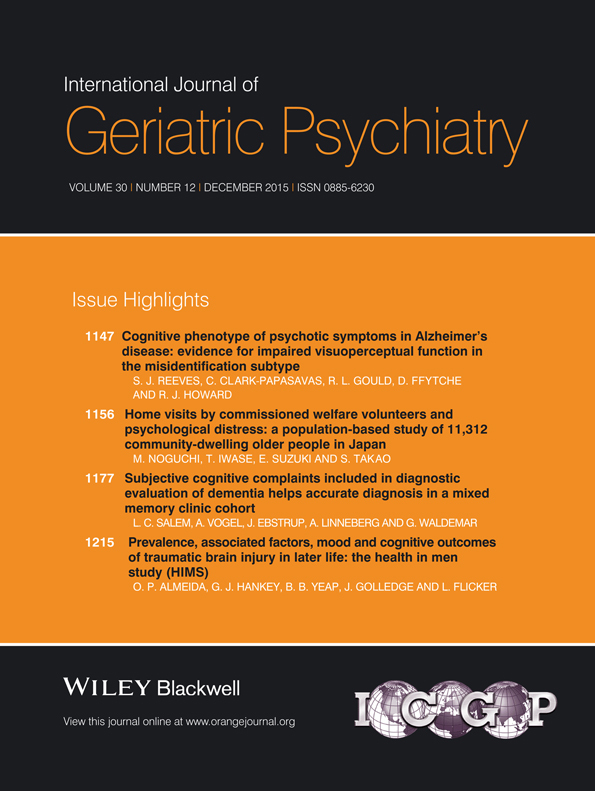Serum peptides as candidate biomarkers for dementia with Lewy bodies
Abstract
Objective
For diagnosis of dementia with Lewy bodies (DLB), we tried to find blood biomarkers for the disease.
Methods
Serum peptides were comprehensively detected by mass spectrometry. Peptides of interest were identified by tandem mass spectrometry.
Results
One hundred forty-six peptides were detected in a training set consisting of 30 DLB patients, 30 patients with Alzheimer's disease (AD), and 28 healthy control (HC) subjects. Multivariate analysis for discriminating the DLB group from the non-DLB (AD and HC) group using ion intensity of four peptides (2898, 4052, 4090, and 5002 m/z) showed sensitivity of 93.3% and specificity of 87.9% (DLB/nonDLB-4P model). In a testing set consisting of 20 DLB patients, 30 AD patients, and 14 HC subjects, this model showed sensitivity of 90.0% and specificity of 88.6%. DLB/nonDLB-4P model detected 86.7% and 90.0% of the AD patients as non-DLB in the training and testing sets, respectively, and discriminated all the 15 patients with amnestic mild cognitive impairment as non-DLB. Notably, a combination of two peptides (1737 and 5002 m/z) showed sensitivity of 95.0% and specificity of 93.3% for discriminating the DLB group from the AD group (DLB/nonDLB-2P model) in the testing set. The peptides used in these models included fragments from complement 4b, Wnt-2b, and lipopolysaccharide-binding protein, which were reported to be involved in the pathology of DLB or Parkinson's disease and hippocampal neurogenesis.
Conclusions
Serum peptide profiles would provide useful DLB biomarker candidates, which may be implicated in the pathophysiology of the disease. Copyright © 2015 John Wiley & Sons, Ltd.




